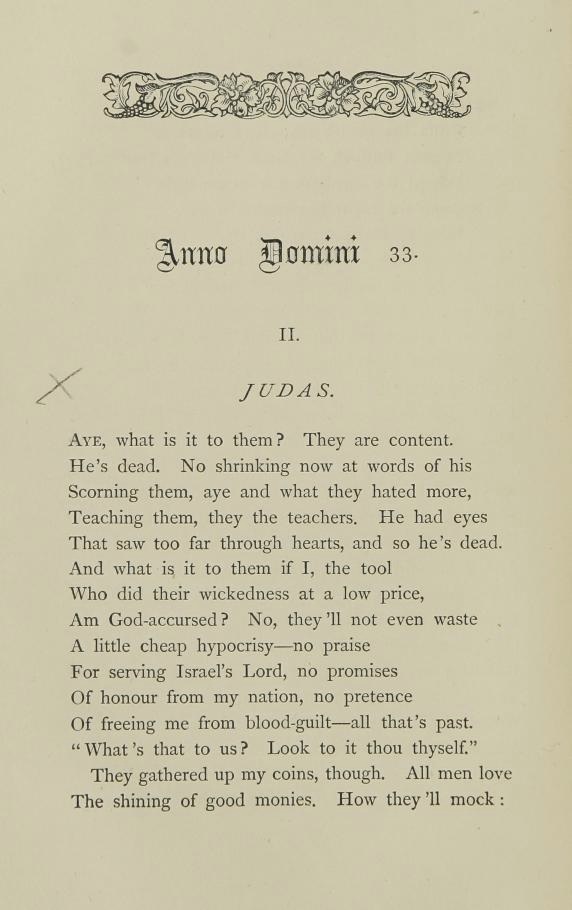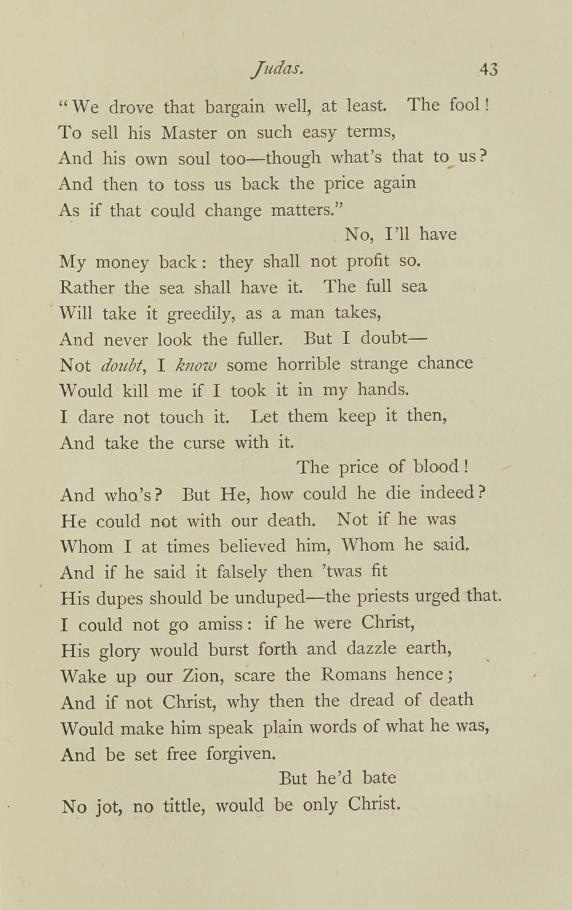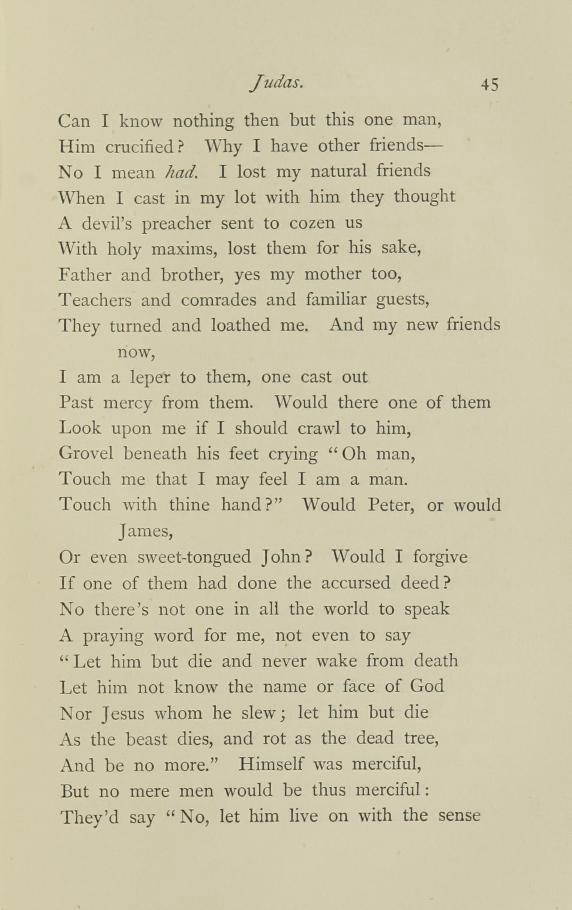Augusta Webster, A Woman Sold and Other Poems. 1st ed. 1867 (ABLibrary 19thCent PR5766.W2 W66 1867)
Rare Item Analysis
by Carina Zuniga
Augusta Webster succeeded Robert Browning and Lord Alfred Tennyson in her use of the dramatic monologue, but she added a flare of her own; Webster enjoyed writing from the viewpoint of controversial characters. Her dramatic monologue, “A Castaway,” is one example in which the narrator is a harlot. For my Victorian poetry class, I examined Webster’s dramatic monologue “Judas” from the first edition of her book, A Woman Sold and Other Poems (1867). She wrote this book during the seven-year span of her greatest success as a poet, which lasted from 1863 to 1870. “Judas” is the second of four monologues in Webster’s larger work, “Anno Domini 33”, included in A Woman Sold. The book can be found in the Armstrong Browning 19th Century Women Poets Collection. A digital copy can be found through the following link through the ABL Women Poets Collection website: http://digitalcollections.baylor.edu/cdm/landingpage/collection/ab-wpc. Through her use of the dramatic monologue, Webster crafts a sympathetic perspective for one of the most infamous persons in the story of Christianity.
As a dramatic monologue, “Judas” delves into issues about the speaker’s perception of how he has been influenced by society, reveals his multilayered inner conflict and turmoil, and implies the true motivation behind his actions. In this case, Judas speculates about how joyous he imagines the religious leaders are who paid him for betraying Christ: “AYE, what is it to them? They are content. / He’s dead… / And what is it to them if I, the tool / Who did their wickedness at a low price, / Am God-accursed? (42). Webster’s Judas feels forsaken and doomed to never be forgiven by men and God alike. This Judas also expresses remorse at having been disowned by his family and former friends when he initially began to follow Christ, whom they believed to be a “devil’s preacher” (45). Overall, Judas feels as though he has been an outcast since the beginning of his journey with Jesus. After betraying Christ, Judas feels more like an exile than ever. This harsh treatment by those whom he loved may have contributed to his betrayal of Christ.
Another common theme in this dramatic monologue is Judas’s inner conflict. He acknowledges that his society does not accept what he has done, but he also struggles with accepting those actions. In expressing his fear of being forsaken and never forgiven by others, he exposes his concern that he is no longer worthy of being accepted or forgiven. In Matthew 27:3, Judas returns the thirty pieces of silver to the chief priests and elders. In Webster’s work, Judas struggles with the leaders’ greed while simultaneously reminding the reader of his own: “The full sea / Will take it greedily, as a man takes, / And never look the fuller” (43). Much like the religious leaders, he greedily accepted money for another person’s life, but was no better for it. In his criticism of others, Judas reveals his inner battle to the reader.
Another revelation is the lack of sincerity in his motivations for following Christ. Whether intentionally or not, Webster’s Judas admits that he expected to be treated like royalty:
“And we saw…we who believed
We should be leaders under him and
To have the people honour us, and live
In our ceiled palaces among the tribes
Content and prospering around us, saw
He would but teach submission to the yoke,
Saw we were only chosen to be poor
More than all others, meaner, more despised…” (48)
His tone here is bitter and almost rebuking. Even though he expresses regret earlier in the poem, he reveals that his betrayal of Christ may have had more to do with money than the pieces of silver offered to him by the chief priests and elders. Although disappointed in himself, he seems to express disappointment in Christ humbling the apostles rather than richly rewarding them.
Webster’s monologue is a great example of how characters experience society, handle inner turmoil, and reveal his/her motivations. Her choice of controversial figures adds a surprising element for readers. Teachers and students may use “Judas” as an example of a dramatic monologue and compare and contrast it with any number of Robert Browning’s or Tennyson’s dramatic monologues. Readers may also take a more gendered reading of “Judas” considering how active a feminist Webster was in her day. Further research may provide insight on Webster’s views of Christianity, which may alter or at least influence one’s reading of this monologue.
 |
 |
 |
 |
